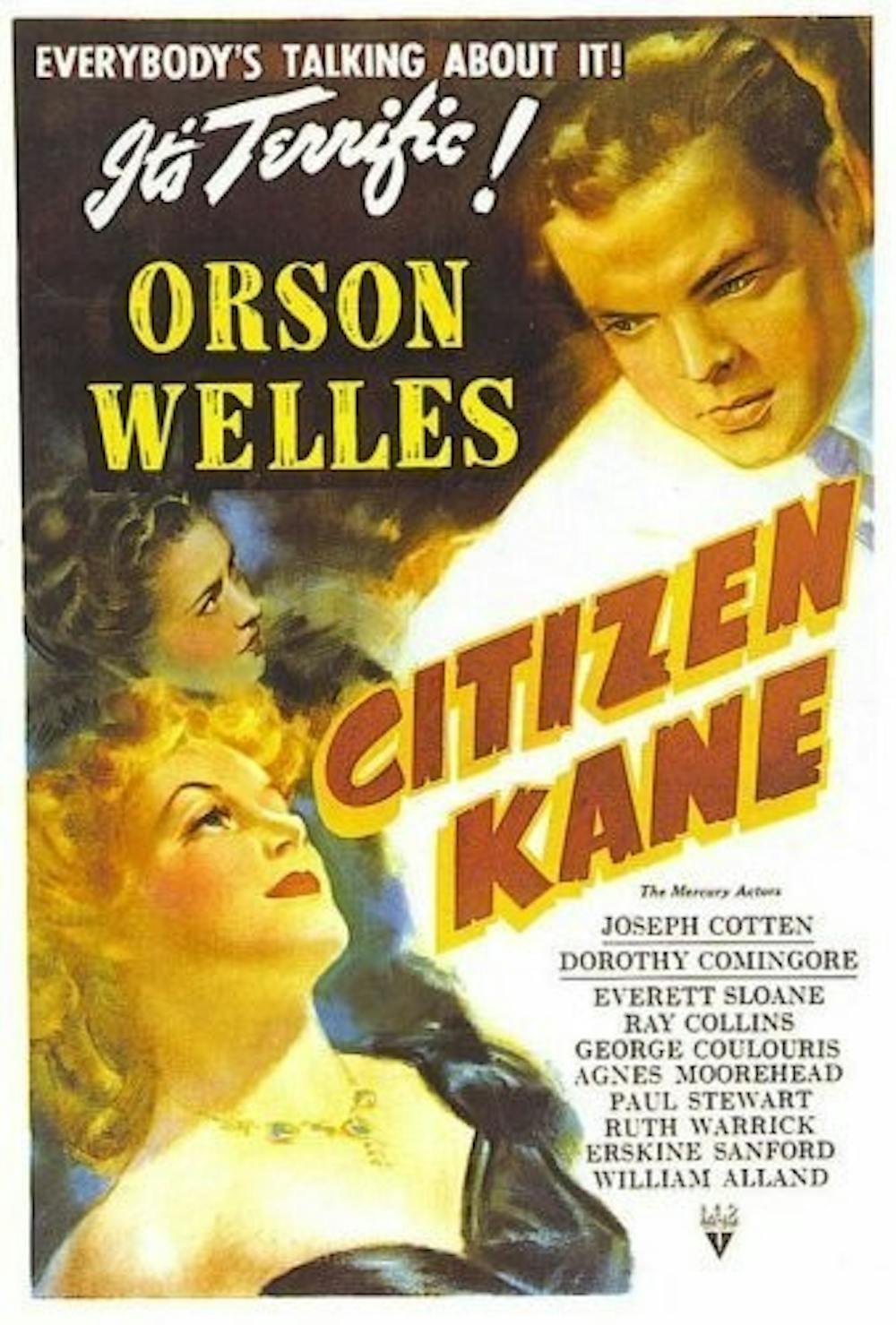For most, black and white films are a thing of the past, a classical scene that we hardly ever divulge in. “Citizen Kane” is classical film of this nature, and many critics as well as fans have said it is the greatest film of all time. Despite the fact that it was nominated for nine Academy Awards, I personally didn’t think the film lived up to the hype or its top spot on the American Film Institute’s rankings.
The film follows the story of newspaper tycoon Charles Foster Kane (Orson Welles). Some might not know however, that the film was based off of the life William Randolf Hearst. If that name doesn’t ring a bell, read the side of your latest issue of "Cosmo" or "Car and Driver." These publications and more fall underneath Hearst's empire, as they are products of Hearst Magazines. It actually stirred up a feud and a lot of controversy, so much so that Hearst refused to publish anything regarding the film upon its release in 1941.
The film begins with the demise of Kane, making the front page of every newspaper around the world. A few reporters, Jerry Thompson being the main one, want a different angle than just an obituary. Thompson sets out to find out what Kane’s final word means, as his last word uttered was “rosebud.” He interviews countless immediate people in his life, from his second wife to his greatest enemies, hoping to find the story.
Since the film is told in flashbacks, it’s a little hard to follow initially. Once you get the hang of it, the film starts to make more sense. Even then, the film is somewhat of a bore. I found myself constantly asking, “What did he say?” or “Who is that?” because so many characters flash in and out with quick, quiet dialogue.
However, from a journalism perspective, or even simply an ethics perspective, there are tidbits of advice. Even back in the day of daily newspapers, Kane knew that “the news goes on for 24 hours a day.”
It also is a great depiction of the age old story of no matter how much success a man has, that doesn’t buy him happiness. Kane experiences loss and depression despite owning a huge estate and an entire media empire. He was on top of the world with millions of dollars and it still wasn’t enough.
I didn’t find this movie to be anything memorable, and most of the time I was waiting for it to come to a close. Young Kane was charismatic and engaging, but his overall story wasn’t intriguing enough. For the first time of the semester, I’m coining a movie "timed out."
What's your opinion of "Citizen Kane"? Tell the reporter at dpharias@asu.edu or follow @dpharias on Twitter.
Like The State Press on Facebook and follow @statepress on Twitter.





